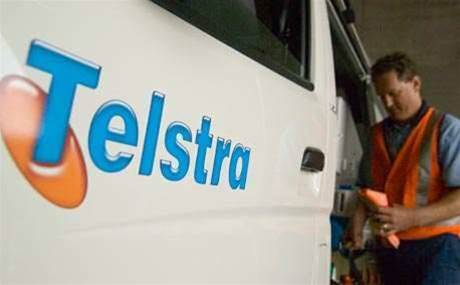The ACCC has backed down on a threat to use competition law to control the prices charged by Telstra for exchange access, ducking possible legal action.

The Australian Competition and Consumer Commission (ACCC) controversially indicated in July last year that it believed it could invoke Part XIC of the Competition and Consumer Act if Telstra used high pricing to block rival ISPs from taking space in its exchange buildings.
The proposal — which would have resulted in a new, separate inquiry into facilities access services — had the support of a bevy of ISPs, including iiNet and Optus.
However, it irked Telstra enough to threaten legal action over what it saw as an exercise of powers beyond the scope of what it said the laws intended.
The ACCC maintained its hardline stance on invoking competition laws against Telstra as late as a draft decision in December 2013 (pdf).
But the regulator has iced that threat at the last minute, dropping its aggressive stance from a final decision released late on Friday. (pdf)
"While the ACCC is of the view that it may declare a facilities access service under Part XIC of the CCA, it has decided that it will not commence a separate declaration inquiry in relation to facilities access services at this point in time," the ACCC said.
It is not removing the threat of a new inquiry entirely, but rather putting off any decision on it until at least the end of 2014.
The ACCC said it instead plans to weigh up facilities access pricing in an upcoming inquiry on final access determinations (FADs) for a basket of wholesale carriage services that run on Telstra's copper network. This approach is not without controversy - Telstra also sees it as scope creep, and is likely to fiercely dispute it.
The ACCC believed this could result in a "more timely regulatory response" for ISPs than kicking off a separate inquiry.
The regulator also noted that there are presently three investigations underway over the prices Telstra charges for exchange access to undisclosed ISPs.
Although it acknowledges the outcomes of these cases will be ISP-specific, it appears the ACCC is keen to see the results of these cases inform its industry-wide plan of attack on the issue.


_(28).jpg&h=140&w=231&c=1&s=0)


_(33).jpg&h=140&w=231&c=1&s=0)





 iTnews Benchmark Awards 2026
iTnews Benchmark Awards 2026
 iTnews Executive Retreat - Security Leaders Edition
iTnews Executive Retreat - Security Leaders Edition
 iTnews Cloud Covered Breakfast Summit
iTnews Cloud Covered Breakfast Summit
 The 2026 iAwards
The 2026 iAwards












_(1).jpg&h=140&w=231&c=1&s=0)



